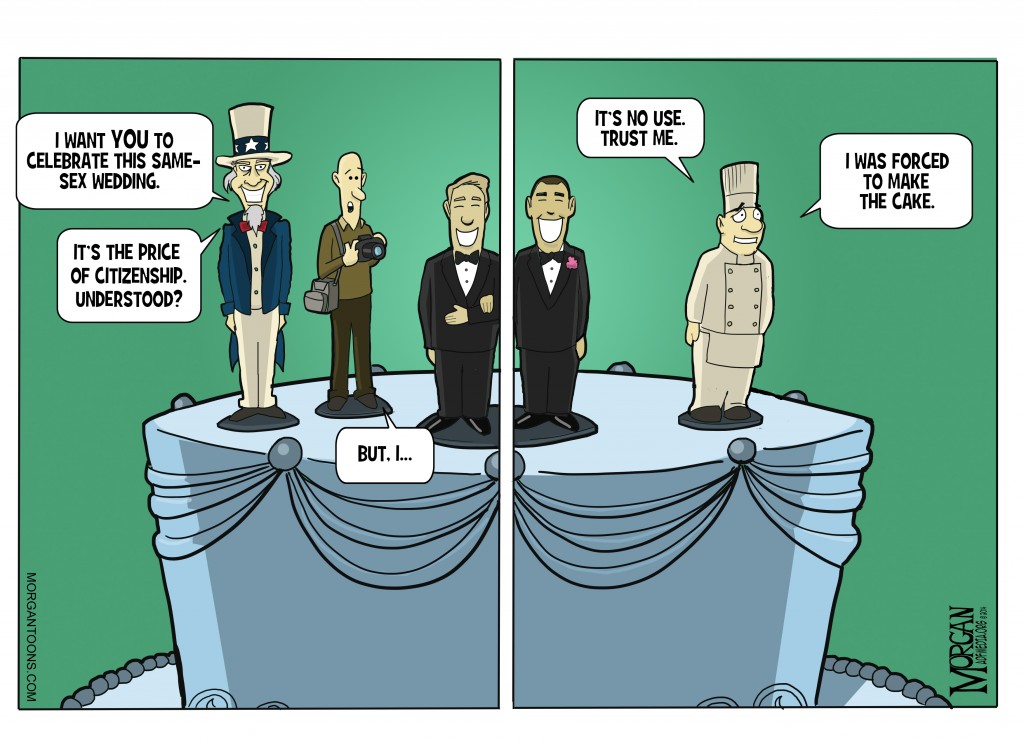
Editor’s Note: This article is the first of a series about same-sex marriage.
Two Evangelical pastors who run a non-denominational wedding chapel in a small town in Idaho made national news headlines last month for refusing to host a same-sex wedding. One major national controversy and hundreds of editorials and blog posts later, they have been cleared.
The debate about same-sex marriage did not end with the Oct. 6 announcement that the Supreme Court would not hear any state’s appeals against it, and a ruling last week by an appeals court has renewed the discussion of its legality in the states.
“If the desire of the court was to resolve this once and for all, this didn’t accomplish that,” said Lynn Wardle of the J. Reuben Clark Law School.
Legal controversies
The Supreme Court’s resolve not to hear any same-sex marriage cases may not last long – the 6th U.S. Circuit Court of Appeals ruled in favor of states that have banned same-sex marriages Nov. 6. This was the first appellate court to uphold a state’s ban of same-sex marriage. The 5th U.S. Circuit Court of Appeals has a conservative majority, so when it rules next year it might add to the dissent in appeals courts. This disagreement among the appeals courts may force the Supreme Court to hear a case on same-sex marriage.
America has a long tradition of religious freedom, meaning nonprofit religious institutions will not likely receive legal pressure to perform same-sex marriages, Wardle said. Economic and social pressure is a more likely possibility, such as the firing of government workers who refuse to issue same-sex marriage licenses.
“Might the LDS Church lose a tax-exempt status for not allowing bishops to perform same-sex marriage?” Wardle suggested. “Will Mormons not be eligible to be hired as schoolteachers?”
Clifford Rosky, a professor of family law at the University of Utah, disagreed. He said he knew of only one precedent for the Internal Revenue Service threatening to remove the tax-exempt status of institutions the government viewed as discriminatory. That case was a university that forbade interracial dating, but Rosky said blacks in America have such a unique history — no other American minority group has ever experienced anything like the institution of slavery — that this is an isolated case.
“The IRS has never made that claim for any other group, including women,” he said.
Brett Scharffs, also a BYU law professor, said it is too early to say for sure what might happen to churches that restrict marriage to heterosexual couples, but consequences will certainly come to small-business owners such as the pastors from Idaho. Last year, three state Supreme courts ruled that a photographer, florist and cake baker must all participate in same-sex weddings or check out of business. The photographer’s case was dismissed without a hearing by the U.S. Supreme Court; the other two are still appealing.
“If you’re involved in a for-profit business, I think that’s where you’re going to have issues,” Scharffs said.
He said some states might pass laws granting exemptions to protect religious liberty, such as the statute that allowed the pastors from Idaho to avoid hosting a same-sex wedding for religious reasons.
“The photographer and baker are just the beginning of this,” said Ryan Anderson, a legal scholar and national advocate for traditional marriage, while lecturing at BYU.
Cases such as these, where the issue was one of forced participation in a same-sex wedding, are not to be confused with daily business operations. Rosky emphasized that no debate can legally exist as to whether same-sex individuals can be hired, served or rent property from individuals who condemn homosexuality for religious reasons. The LDS Church supported a Salt Lake City ordinance forbidding such discrimination in employment and housing as a good balance of religious freedom for all involved, he said.
“I’m not aware of any religious tradition that requires someone to fire a sinner,” he said.
Next week: Polygamy and the response of churches to the same-sex marriage movement.




